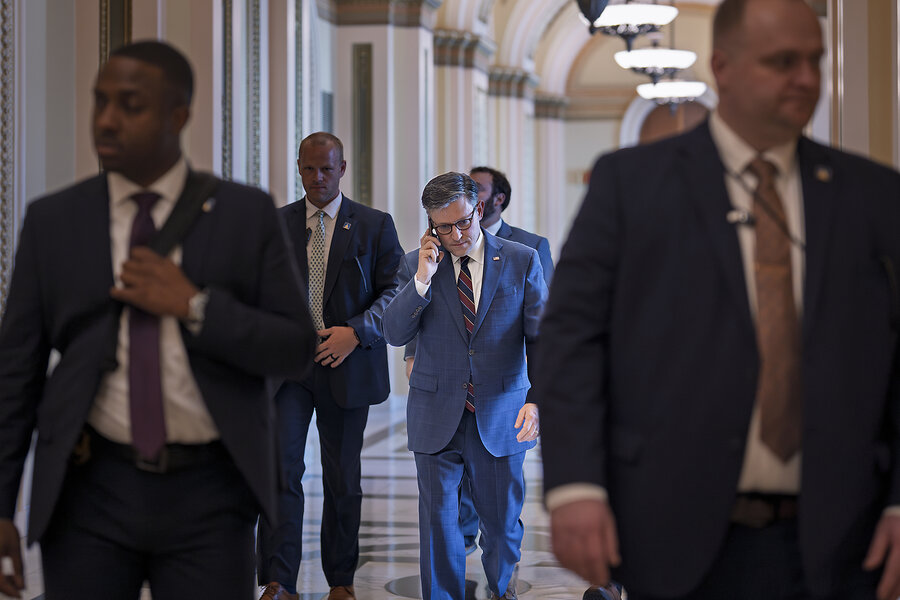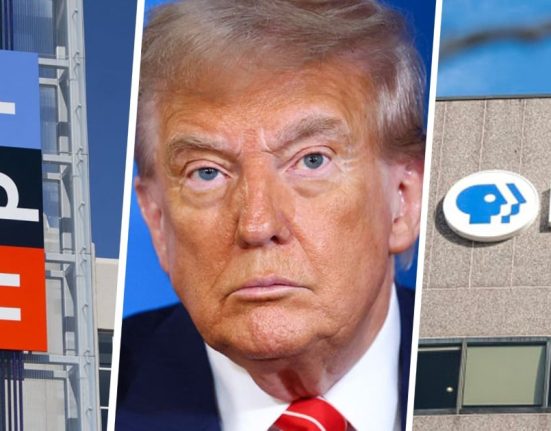Poised to enact its first major legislation regulating cryptocurrency, the United States is pushing digital money into the mainstream.
The first of three bills, which cleared its final hurdle in the House on Thursday, would create a regulatory framework for a special kind of cryptocurrency, known as stablecoins. The House also passed two other crypto-related bills Thursday, establishing new rules for the largely unregulated digital money while banning the nation’s central bank from issuing its own version. These bills now go to the Senate, while the stablecoin measure, already passed by the Senate, goes to President Donald Trump to sign.
The trio of bills could make digital money more common and less risky, allowing electronic dollars to travel the world more cheaply and almost instantaneously.
Why We Wrote This
In a bipartisan effort, Congress is moving to regulate cryptocurrencies for the first time. This could enhance the credibility of digital money and extend the dollar’s dominance with a new generation of currency.
The legislation “definitely helps legitimacy,” says Scott Baker, a finance professor at the Wisconsin School of Business at the University of Wisconsin-Madison. The technology is likely to be seen as more stable and less “fly-by-night,” he says, adding that it may take some time before employers routinely use the digital money to pay their overseas employees or consumers buy goods abroad without having to pay foreign-exchange fees.
Rules of stability
President Trump is expected to sign the stablecoin legislation, known as the GENIUS Act (Guiding and Establishing National Innovation for U.S. Stablecoins) quickly. Stablecoins are a form of crypto whose value is pegged to a particular currency, usually the dollar. Already passed by the Senate with bipartisan support, the bill easily won House approval 308-122.
Supporters hope the new law will prompt risk-averse financial institutions to issue their own stablecoins, thereby expanding the use of dollars in this new digital form and extending the dollar’s dominance for a new generation. On Wednesday, Bank of America signaled it was looking into issuing stablecoins once it had “legal clarity.” JPMorgan Chase and Citigroup are also working on plans.
“The main benefit of laws like the Genius Act is how much it reduces risk by imposing strict rules on stablecoin issuers,” writes Omid Malekan, a Columbia Business School professor and author of “Re-Architecting Trust,” a book on cryptocurrencies, in an email. “Regulation will go a long way towards both adding credibility to crypto and boosting adoption, particularly from institutions.”
Unlike other forms of crypto, whose value can fluctuate wildly, stablecoins have the advantage that their value stays the same. This allows them to be used as currency, so, for example, an immigrant in the United States could zap the digital money back to his home country almost immediately and at a far lower cost. Wiring it can take up to five business days and cost between $25 and $50 per transaction. So far, that use for crypto is rare.
A whopping 91% of stablecoin transactions involve the trading of other cryptocurrencies rather than retail uses, such as buying physical goods, according to Visa. But the growth potential is great, especially for businesses. JPMorgan forecasts the stablecoin market could double by 2028; Standard Chartered forecasts an eight-fold increase to $2 trillion by that year.
In the wake of the pending legislation, Bitcoin, the oldest and most established crypto, has been on a tear. It briefly breached the $120,000 mark and set a record high a few days ago before a slight retreat.
Two more crypto bills
House Republicans also passed two other crypto bills: the CLARITY Act and the Anti-CBDC Act.
The CLARITY Act aims to resolve a longstanding debate about the nature of Bitcoin and other investment-type crypto. It sets up a framework that makes it easier to launch some new crypto products, as they will qualify as more loosely regulated commodities rather than as investments, which come with more stringent requirements. The industry has long produced so-called meme coins based on an internet trend or name, including the president’s own $TRUMP. (In addition to the meme coin, the Trump family now owns a bitcoin mining firm and a stablecoin firm, among other cryptocurrency interests.)
Now, the financial sector is expecting a boom in bigger and more mainstream crypto investments.
“If you’ve ever wondered what would happen to crypto if JPMorgan, Bank of New York Mellon, and Nasdaq could build freely in the space, you’re about to find out,” wrote Matt Hougan, chief investment officer of Bitwise Asset Management, in a blog post Monday.
The third House bill, the Anti-CBDC Surveillance State Act, would ban the Federal Reserve from issuing its own stablecoin. Many central banks around the world have been exploring what’s known as central bank digital currency, or CBDC. But conservative Republicans, especially the House Freedom Caucus, worry a Fed stablecoin would give the central bank unprecedented access and surveillance over the financial transactions of individual Americans.
Those two bills now head to the Senate.
“It should be regulated”
Crypto investors are usually skeptical of regulation. One of the allures of digital currencies like Bitcoin is that they have thus far been free from government control. Many investors, however, support the U.S. moves to establish some rules of the road so mainstream companies can participate.
“I’m all for regulation, but at the same time, I feel like governments aren’t always the best at regulations,” says Rory Mellis, a crypto investor and systems test engineer for Technovative Applications, a defense company in Brea, California. “I’m more for it as long as they just follow basic common sense.”
It’s way too easy to create a meme coin, which in several instances has led to scams that have cost investors millions of dollars, says Victor Ramirez, a crypto investor and personal banker at KeyBank in Olympia, Washington. “It should be regulated.”
Monitor staff writer Goodluck Ajeh contributed to this story.









